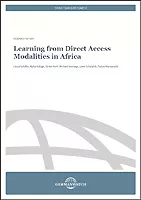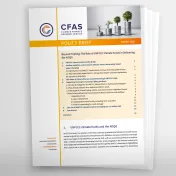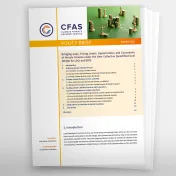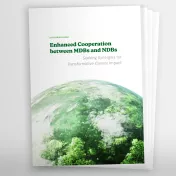
In the climate finance arena, the Adaptation Fund (AF) has pioneered direct access - an access modality that allows developing countries to receive funds for project and programme implementation directly without going through an intermediary. To date, a number of national implementing entities (NIEs) in Africa have commenced the process of programming direct access funding domestically; moreover domestic climate funds (DCFs) in several African countries are similarly grappling with this challenge. These combined experiences provide rich lessons, useful for a decisive phase in the global climate finance architecture - determining how the provision of innovative financing mechanisms and direct access funding instruments will work in practice and allowing inferences about how direct access can be programmed more broadly. The lessons learnt regarding challenges and enabling factors during accreditation, project development and approval, as well as project implementation can be used to strengthen support processes for the accreditation of future NIEs to the AF and also to the Green Climate Fund (GCF).
The aim of this report is to support the debates in climate finance – from the AF to the GCF – by providing insights into the processes of programming climate finance domestically for 6 NIEs (NEMA-Kenya, SANBI-South Africa, CSE-Senegal, MINIRENA-Rwanda, ADA-Morocco and FNE-Benin), 2 MIEs (UNEP in Tanzania, AfDB with its head office in Tunisia) and 2 RIEs (OSS and BOAD) in Africa, as well as 4 domestic climate funds (FONERWA in Rwanda, the CRGE Facility in Ethiopia, the FNE in Benin and the Green Climate Fund in South Africa).




